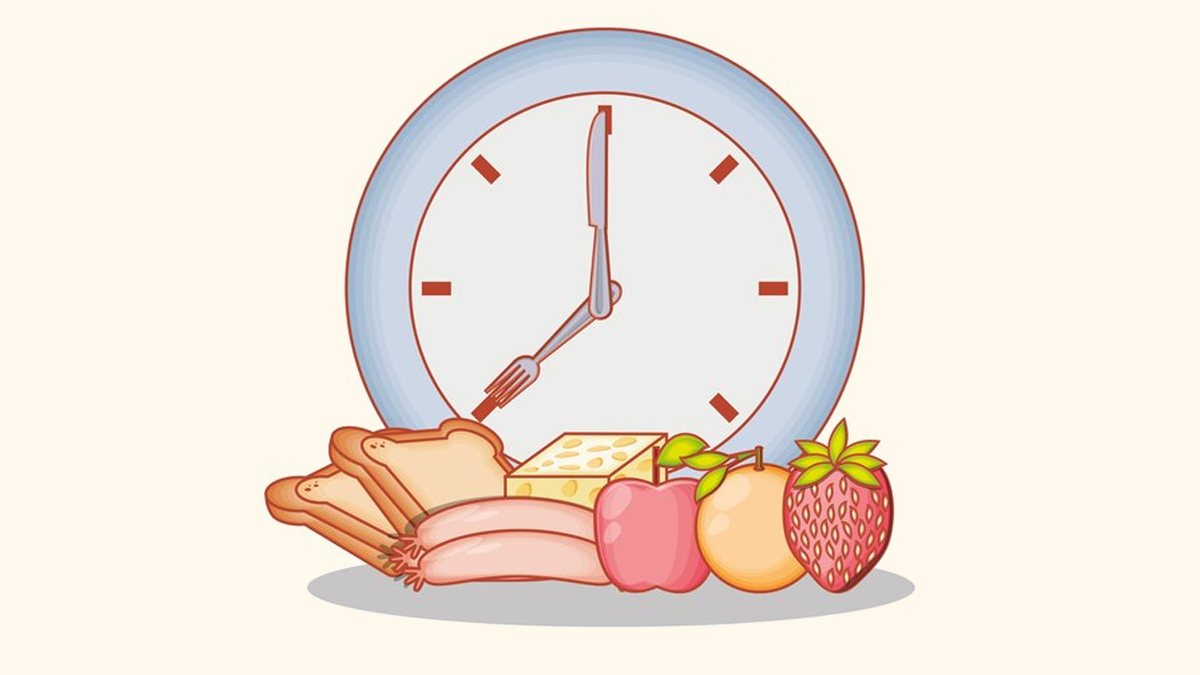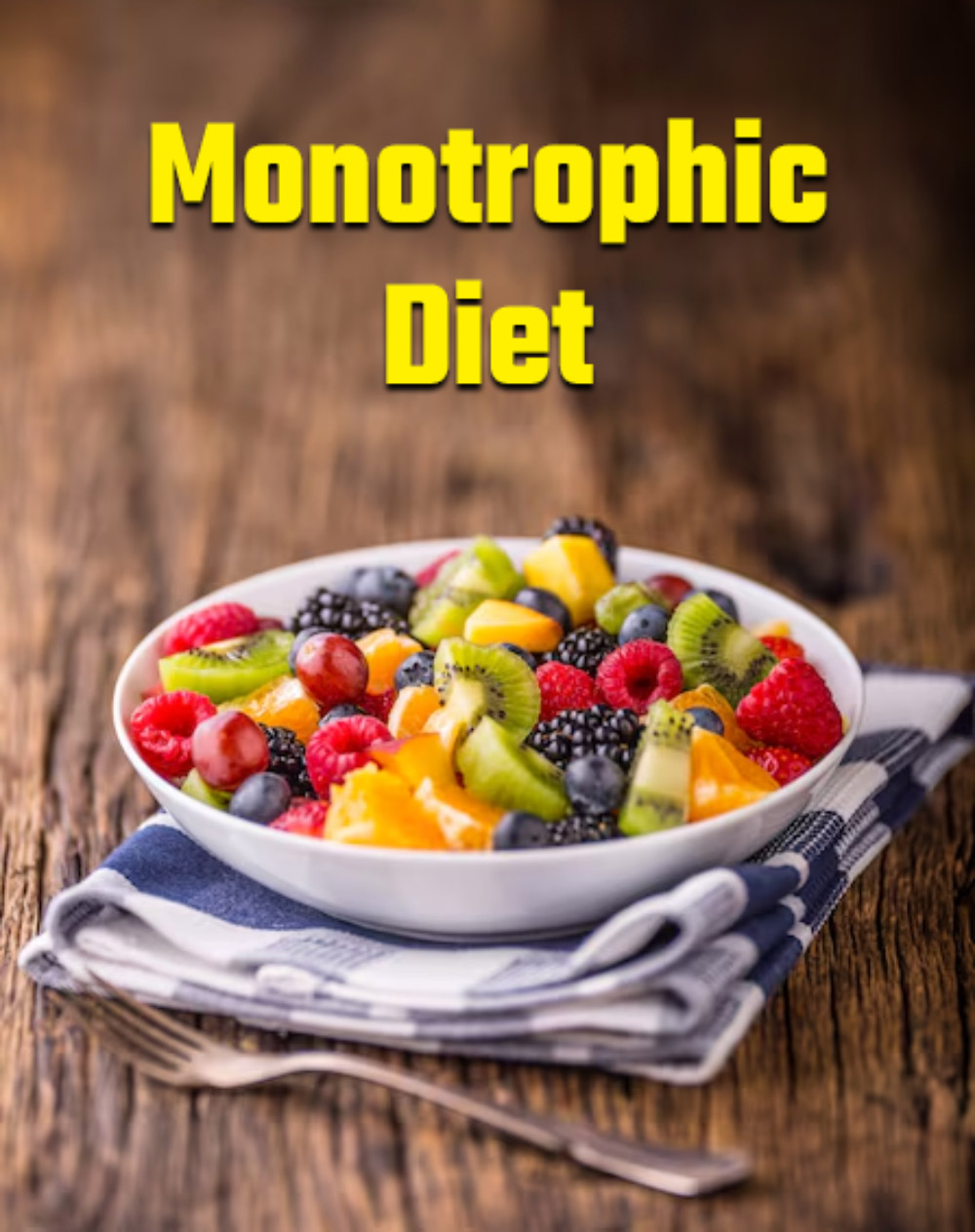
It is common to get overwhelmed by the ever-evolving diet trends, however, two trends have caught our attention: OMAD (eating just one meal a day) and the Monotrophic Diet (eating the same meal all day). OMAD focuses on when you eat, while the Monotrophic Diet is about what you eat. But do these diets help with weight loss, or are they another fad?
Table of Content:-
To understand these diets, we spoke to Samreen Saniya, Nutritionist, Cloudnine Group of Hospitals, Bengaluru, who shared insights on the same.
What is OMAD?

"OMAD, or One Meal a Day, is an extreme type of Intermittent Fasting (IF) where a person eats all of his/her daily calories in one meal within a one-hour feeding window and remains fasted for the other 23 hours," said Saniya. This diet is a more rigorous version of the 16:8 fasting approach, in which eating is done within an 8-hour window. OMAD can be practised in different ways, including:
- Eating one large, nutrient-dense meal per day.
- Consuming all macros (carbs, proteins, fats) in one sitting.
- You may drink water, tea, black coffee, and zero-calorie drinks during the fasting period.
What is the Monotrophic Diet?
The monotrophic diet or mono diet consists of consuming only a single food or meal during the whole day. Its variations are:

- Having one food only, for example, consuming only bananas throughout the day
- Having one meal after another of the same kind. Example: grilled chicken and broccoli for every meal.
- Limiting food options but adding some variety. Example: consuming only fruit meals
- The monotrophic diet is usually followed for short-term detoxification or as a reset rather than a lifestyle.
Also Read: Wellness Trends That Might Be Doing More Harm Than Good
Benefits of OMAD
1. Weight Loss and Fat Burning

- "OMAD drastically cuts calorie consumption because of the limited eating window, resulting in a caloric deficit," added Saniya. A study featured in the journal Frontiers in Physiology found that eating just one meal a day in the evening can lead to a reduction in body weight.
- When fasting, the body enters ketosis, using stored fat as fuel.
- OMAD increases autophagy, a process where the body breaks down damaged cells and replaces them with new ones, enhancing fat loss and cellular health.
2. Simplicity and Convenience
- There's no need to prepare several meals; only one meal a day saves time spent cooking and eating.
- Eliminates frequent snacking, decreasing decision fatigue regarding food intake.
3. Improved Insulin Sensitivity
- Longer periods of fasting regulate blood sugar levels and minimise insulin resistance, which can help prevent type 2 diabetes.
- Stabilised glucose levels avoid energy crashes and sugar cravings.
4. Enhanced Mental Clarity and Focus

- Fasting stimulates the release of Brain-Derived Neurotrophic Factor (BDNF), enhancing cognitive function.
- OMAD avoids food-induced sluggishness, keeping the brain alert.
5. Potential Longevity Benefits
- Fasting stimulates sirtuins, proteins associated with anti-ageing and longevity.
- OMAD can reduce markers of inflammation, hence decreasing the risk of chronic disease.
Also Read: Worried About The Microplastics In Your Diet? Try THESE Simple Steps To Cut Exposure
Drawbacks of OMAD
1. Nutrient Deficiencies

- It is difficult to consume all necessary vitamins and minerals within a single meal.
- Fibre, protein, omega-3s, and micronutrient deficiencies can occur.
- The solution is to make the single meal well-balanced and nutrient-dense.
2. Overeating or Digestive Discomfort
- A day's calorie intake in a single sitting may lead to bloating, acid reflux, and slow digestion.
- Solution: Consume slowly and select readily digestible foods.
3. May Not Be Suitable for Everyone
- Pregnant women, diabetics, and people with eating disorders must stay away from OMAD because of severe caloric restriction.
- Solution: Opt for a modified fasting routine with an extended eating window.
Benefits of the Monotrophic Diet
1. Simplifies Digestion and Reduces Bloating

- Having only one food type reduces digestive stress, making the gut more efficient.
- Facilitates individuals with food sensitivities to discover their triggers.
2. Supports Detox and Gut Health
- The monotrophic diet is said to take a break from the digestive system and enable greater nutrient absorption.
- Some mono meals (fruit diets) contain antioxidants and fibre, supporting gut healing.
3. Easy to Follow
- You don't need to monitor macros or calculate calories; consume the same food throughout the day.
- Ideal for short-term fasting or cleansing.
Also Read: 2-3 Times Or 5-6 Small Meals: How Many Meals Should You Eat In A Day? A Nutritionist's Take
Drawbacks of the Monotrophic Diet
1. Lack of Nutritional Balance
- Depending on just one food or meal causes deficiencies in essential nutrients.
- A diet of only bananas, for example, is missing protein and fats.
- Solution: Apply the monotrophic diet for cleansing purposes only, not for extended weight loss.
2. Muscle Loss and Low Energy
- Consuming only fruits or vegetables can result in muscle wasting due to protein deficiencies.
- Low-calorie consumption results in fatigue, dizziness, and hunger.
- Solution: Incorporate sufficient protein and healthy fats.
3. Can Lead to Food Obsession
- Sticking to one food all day can lead to disordered eating patterns.
- Solution: Use it for temporary cleanses instead of long-term diets.
[Disclaimer: This article contains information provided by an expert and is for informational purposes only. Hence, we advise you to consult your professional if you are dealing with any health issue to avoid complications.]
Also watch this video
How we keep this article up to date:
We work with experts and keep a close eye on the latest in health and wellness. Whenever there is a new research or helpful information, we update our articles with accurate and useful advice.
Current Version